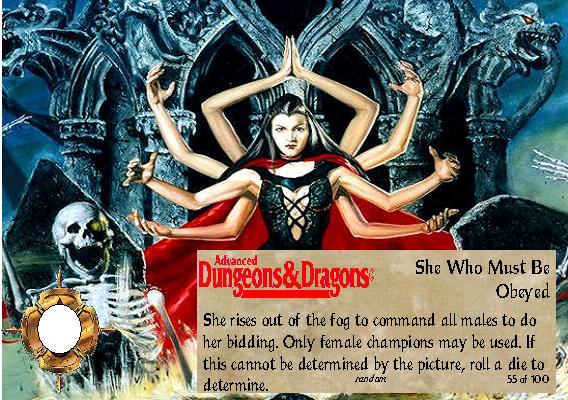

| Players Handbook | - | - | - | AD&&D |
This aspect of play has three facets.
[1] The leader and caller
of a party might order one course of action while various players state
that their characters do otherwise.
Your DM will treat such
situations as confused and muddled, being certain to penalize the group
accordingly.
[2] Obedience also applies
to hirelings and henchmen. Loyalty and morale are factors here,
as is the existing situation
where obedience is called for.
[3] Finally, certain magic
items, particularly magic swords, tend to be argumentative and may refuse
to obey uncertain,
demanding, weak, or foolish
masters.
If in doubt regarding obedience,
the sure test is the one where you ask yourself if your character would
do it.
This test applies only to
creatures, not magically endowed items. If you ask a henchman to try on
a cloak,
it is probable that he and
all of your other henchmen and hirelings will expect that the garment will
become his.
Likewise, if a servitor
is asked to sample the contents of a potion bottle, the item is then regarded
as the servitor's property by all onlookers. Obedience is based on such
considerations, i.e. fairness, justness, rewards, hazards, love, respect,
fear, and similar repute and emotion.
*template***template*